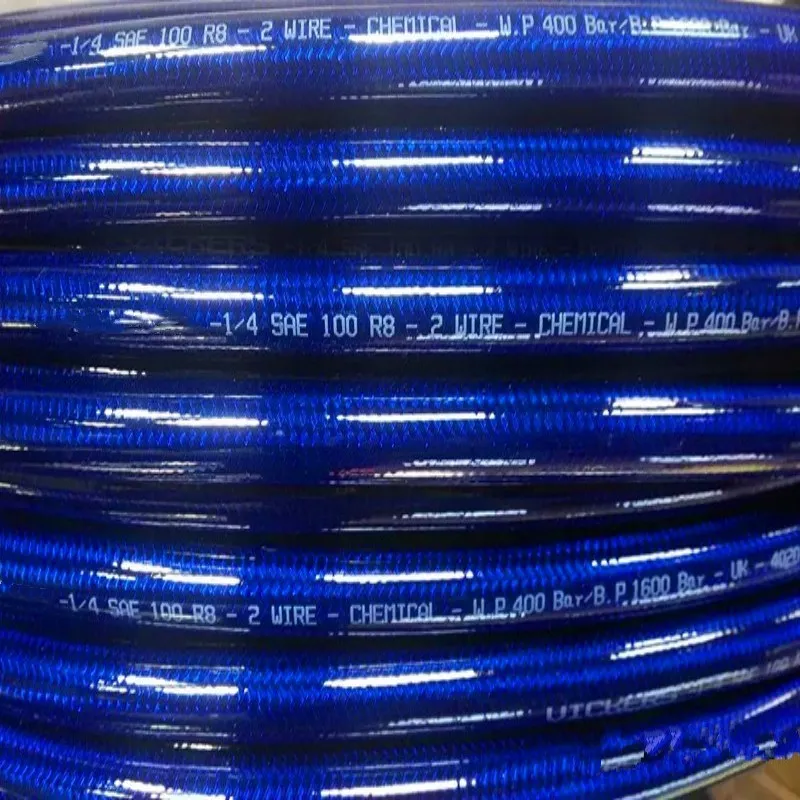ສ.ຫ. . 16, 2024 14:11 Back to list
Flexible Hose Production for Diverse Industrial Applications and Custom Solutions
The Evolution and Importance of Rubber Hose Manufacturers
Rubber hoses are essential components in a wide array of industries, serving critical functions in transportation, fluid conveyance, and machinery operation. The evolution of rubber hose manufacturing reflects advancements in technology and materials science, resulting in enhanced performance and durability. As we delve into the world of rubber hose manufacturers, we uncover their pivotal role in ensuring efficiency and reliability across diverse applications.
Historical Perspective
The history of rubber hoses dates back to the 19th century when natural rubber was first used to create flexible tubing. The initial applications were primarily in agriculture and early industrial machinery. As industries evolved, so too did the demands for more specialized hoses capable of handling varying pressures, temperatures, and chemical compositions.
The introduction of synthetic rubber in the mid-20th century marked a turning point in hose manufacturing. Synthetic materials offered enhanced properties such as increased resilience, temperature resistance, and chemical stability, allowing manufacturers to create hoses suited for more demanding environments. Today, manufacturers utilize a variety of synthetic rubbers—including neoprene, nitrile, and EPDM—each selected based on the specific requirements of the application.
Manufacturing Processes
Modern rubber hose manufacturing involves a series of sophisticated processes aimed at achieving optimal performance. The production begins with the formulation of rubber compounds, which includes mixing raw rubber with curing agents, fillers, and additives to enhance specific properties such as flexibility, strength, and resistance to abrasions.
Once the compound is ready, it is shaped into hoses using various methods, including extrusion, molding, and calendering. Extrusion is the most common process, where the rubber compound is forced through a mold to create long lengths of hose. These hoses are then cut to specified lengths, and additional processes, such as reinforcement with textile or steel wire, may be applied to cater to high-pressure applications.
The final step in the manufacturing process is curing, where the rubber is heated to form cross-links between the polymer chains. This curing process gives the rubber its final strength and resilience, making it suitable for its intended use.
rubber hose manufacturer

Applications Across Industries
Rubber hoses are utilized in numerous sectors, including automotive, construction, agriculture, and chemical processing. In the automotive industry, hoses are crucial for transporting fluids such as oil, coolant, and fuel. They must withstand a range of temperatures and pressures, making the choice of materials and design critical.
In agriculture, rubber hoses are used for irrigation and transferring various liquids, including fertilizers and pesticides. Their flexibility and durability enable them to handle the rigors of outdoor conditions and repetitive movements.
Chemical processing relies heavily on rubber hoses designed to withstand corrosive substances and extreme temperatures. Manufacturers must adhere to strict industry standards to ensure safety and reliability.
Innovation and Sustainability
As environmental concerns grow, rubber hose manufacturers are increasingly focusing on sustainability. This includes the development of eco-friendly materials, such as bio-based rubbers and the implementation of recycling programs for used hoses. Innovations in manufacturing processes also aim to reduce waste and energy consumption, reflecting a broader industry trend towards sustainability.
Conclusion
The role of rubber hose manufacturers is vital to the functionality of many industries. By continuously innovating and adapting to new challenges, they ensure that rubber hoses meet the rigorous demands of modern applications. From historical advancements to contemporary innovations, the journey of rubber hose manufacturing exemplifies the importance of this often-overlooked industry in our daily lives. As technological advancements continue, we can expect rubber hose manufacturers to play an even more significant role in shaping the future of various sectors.
-
Steel Spiral Wire Hydraulic Hose in China - Reliable Supplier & Competitive Prices
NewsJun.10,2025
-
1/4 Inch Hydraulic Hose Supplier - High Quality OEM 3/8 Inch Hydraulic Hose Manufacturers & Service
NewsJun.10,2025
-
1/2 Inch Hydraulic Hose Bulk - Durable, Flexible Bulk Hydraulic Hoses for Industrial Use
NewsJun.10,2025
-
Premium OEM Automotive Hose Supplier & Exporter Durable Solutions
NewsJun.10,2025
-
China PTFE Teflon Hose Exporters High-Temp & Chemical-Resistant
NewsJun.10,2025
-
Premium Hydraulic Suction Hose Flexible & Durable for Industrial Use
NewsJun.10,2025
